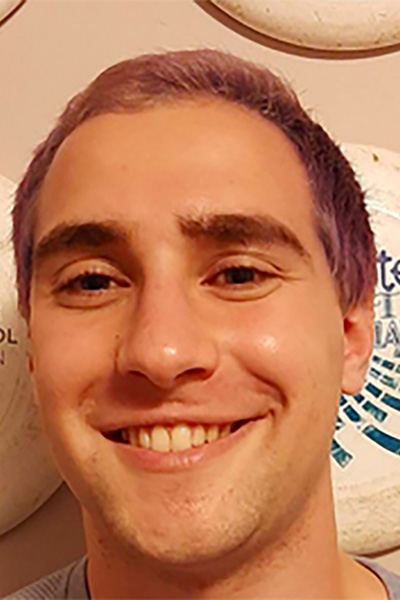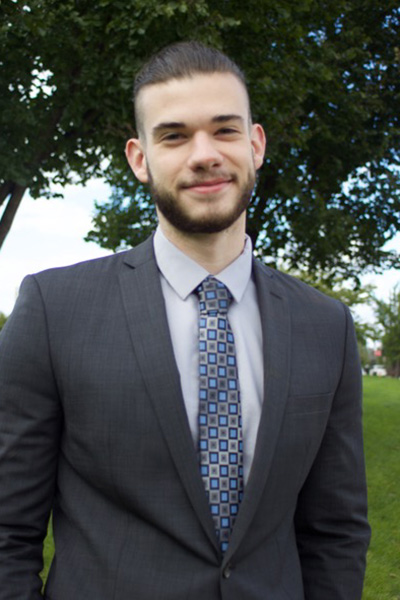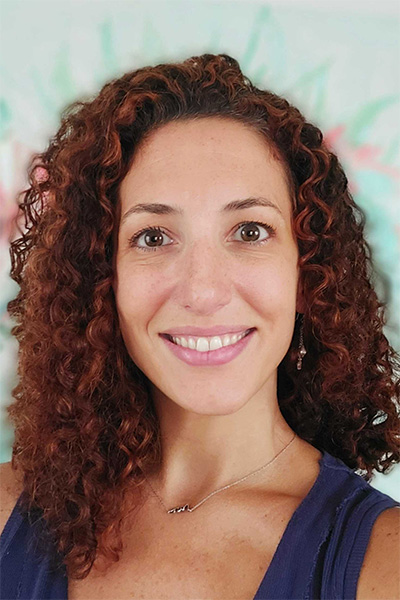Two Students, Alum Named 2021 NSF Graduate Research Fellows
By Christina Papadopoulos '23
May 20, 2021
Two Drexel CoAS graduate students and one recent alumnus have received 2021 National Science Foundation Graduate Research Fellowships to promote research efforts in physics and clinical psychology.
The NSF Graduate Research Fellowship Program aims to encourage innovation and creativity in STEM fields by investing in outstanding graduate students through a five-year fellowship program. The fellowship includes three years’ worth of financial support, with an annual stipend of $34,000 and a cost of education allowance of $12,000 awarded to the researcher and their institution.
As one of the oldest and most competitive graduate fellowships, the NSF GRFP carries prestige and offers unprecedented opportunity to students who are awarded. Being a recipient is indicative not only of the student’s competency and foundation in carrying out research, but also of their potential as a future expert and leader in STEM.
“Basically, NSF says, ‘We are investing in this person because we feel they are going to make significant contributions to science and bring new ideas and perspectives to the table as the next generation of [STEM] researchers,” explains Associate Dean for Research and Director of the Applied Cognitive and Brain Sciences PhD program, Evangelia G. Chrysikou, PhD. “It really highlights the creativity and potential of the student as opposed to other types of funding mechanisms at this level.”
Maxwell Franklin: Confronting Gender Inequality in Physics
 Maxwell Franklin
Maxwell Franklin
Addressing the gender equity imbalance in physics is in the forefront of concerns in the STEM education field. Drexel PhD candidate and NSF GRFP recipient Maxwell Franklin will embark on a project to tackle this disparity, allowing for a greater understanding of recruitment and retention within the physics community.
“Max will be expanding on this [recruitment] effort to build better approaches to understanding text data using natural language processing approaches,” says Franklin’s advisor, Eric Brewe, PhD, associate professor in the Department of Physics. Natural language processing, or NLP, refers to an artificial intelligence system involving the interaction between computers and human beings. NLP unpacks and deciphers human text and audio in a way that processes and derives meaning in human language. “The project is an outgrowth of some of my work on the American Physical Society’s efforts to recruit more women into physics.”
When utilizing NLP, you have to train its algorithm with underlying data. This data is often skewed due to the predominance of men in physics. Franklin hopes to enrich this data with women’s perspectives, allowing for better representation while addressing existing challenges and studying motivations women express about going into physics. He will be using NLP to examine survey responses from women in undergraduate physics to guide his research, utilizing survey responses enriched by NLP.
“The overall goal of my project is to create a predictive tool to determine whether women are at risk of leaving physics [based on] their survey results,” Franklin explains. “From this, more assistance can be given to specific people, and the overall retention rate of women in physics will hopefully increase.”
With a research background in physics education and gender equity, Franklin enters this project with drive and initiative. Four years from now, he hopes to obtain his PhD knowing he has completed this project and created a working predictive tool to analyze retention of women in physics.
“Max has been a pleasure to work with, and I am very much looking forward to returning to campus and getting started on the work of the project,” Brewe says. “He is truly committed to working on issues related to diversity in physics, and I think that came through quite clearly in his [NSF GRFP] application.”
Johannes Wagner: Machine Learning Applications in Particle Physics
 Johannes Wagner
In another area of physics lies Johannes Wagner’s work with ATLAS, a particle physics experiment at the Large Hadron Collider (LHC) located at CERN, the European Organization for Nuclear Research. CERN operates the largest particle physics laboratory in the world, with 23 member states and a base in Geneva on the Franco-Swiss border.
Johannes Wagner
In another area of physics lies Johannes Wagner’s work with ATLAS, a particle physics experiment at the Large Hadron Collider (LHC) located at CERN, the European Organization for Nuclear Research. CERN operates the largest particle physics laboratory in the world, with 23 member states and a base in Geneva on the Franco-Swiss border.
Wagner graduated from Drexel with his bachelor of science in physics in 2020, and is currently pursuing a PhD in physics at the University of California, Berkeley. During his undergraduate career, he became a 2019 Goldwater Scholar and received an honorable mention for the NSF Graduate Research Fellowship Program. These honors, along with his previous co-op roles, paved the path of inspiration, as Wagner drew upon his extensive research experience when applying for the fellowship.
“I work in the intersection of particle physics and machine learning,” he says. “I’m mostly interested in the applications of machine learning techniques to big data particle physics problems.”
ATLAS, the group Wagner is working with, is one of the largest particle detectors and accelerators, recording high-energy proton-to-proton collisions. These collisions allow researchers to search for signs of undetected particles and their interactions. This experiment is prominent in the realm of particle physics, with more than 3,000 scientists working on various aspects of the experiment. ATLAS has allowed investigation into numerous areas, like searching for the Higgs boson and revealing extra dimensions and particles related to dark matter and black holes.
“The process of actually extracting the information from the collisions is very messy, and there are a lot of steps involved. I’m working on a particular part of this process, essentially doing reconstructions of decay vertices within our events,” Wagner explains. “The end goal is to classify them based on specific criteria, using graph neural networks.”
Elizabeth Espinal: Understanding Memory Consolidation in the Brain
 Elizabeth Espinal
Elizabeth Espinal
In a neuropsychological investigation, Clinical Psychology PhD student Elizabeth Espinal will be using a behavioral paradigm called targeted memory reactivation. This paradigm is largely used in electroencephalography (EEG) research, which uses electrodes placed on the scalp to monitor electrical activity in the brain. In Espinal’s research, participants will learn associations between objects, sounds and a spatial location on a grid during wakefulness. After a brief rest period, they’ll complete a test to assess how well they remember the object locations. While participants are sleeping overnight, Espinal will play these sounds, collecting data as their brain activity is monitored.
“Sleep is this sort of large ocean, and you’re searching for this one little stone in the whole ocean,” she explains. “[This method] gives us a target point to look for the neural correlates of reconsolidation during sleep by playing these sounds. The idea is that, by playing sounds, you’re reactivating that memory trace of the object and the spatial location of the object.”
What makes Espinal’s approach so novel is that her study participants are hospital patients with focal epilepsy. As part of surgical planning, patients undergo invasive intracranial EEG monitoring. The patients are monitored to localize seizure onset in their brains to aid in the next step of neurosurgical planning to remove the seizure focus.
Espinal’s study comes to life as the patients wait for a seizure to occur during their monitoring, allowing for her findings to have a more highly focused and robust spatial resolution of brain activity.
“It’s a really unique opportunity to record [data] from a living human brain,” remarks Chrysikou, Espinal’s advisor. “It’s an unexplored, new area of research. I really think it’s going to be groundbreaking in terms of making progress in our understanding and treatment of different kinds of brain disorders.”
Espinal has an extensive background in clinical and basic scientific research, though she preceded her journey as a professional pastry chef in New York City. Her background shows that students do not need to follow a traditional path — NSF is all about rewarding creativity and supporting people with potential found in numerous walks of life.
As a member of BraiNY, the New York City chapter of the Society for Neuroscience, Espinal has had the opportunity to encourage children from underprivileged communities to learn more about STEM fields. She is ardent about encouraging diversity in STEM, and hopes to utilize her fellowship opportunity to promote open access to data, methods and other information involved in the research process.
“NSF wants to support graduate students who are looking to make broader impacts, and the way they define these impacts is by looking at your intentions, and at how you are going to
integrate community into your research,” Espinal reflects. “I really look forward to actually trying to help people, through this opportunity.”
The Drexel College of Arts and Science offers numerous innovative graduate programs at the master’s and doctoral levels. Learn more about CoAS advanced degrees and research fellowship programs.